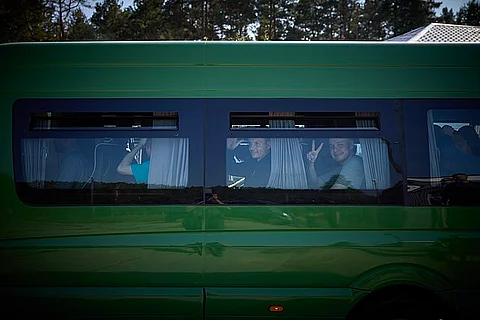

Historic Prisoner Swap Marks Rare Diplomatic Progress
On May 23, 2025, Russia and Ukraine completed the first phase of a landmark prisoner exchange, returning 390 detainees each in the largest such swap since the conflict began. The exchange, part of a broader "1,000-for-1,000" agreement brokered during direct talks in Istanbul on May 16, included 270 soldiers and 120 civilians from both sides. Ukrainian President Volodymyr Zelenskyy emphasized the emotional reunions of families, stating, “We check every surname and every detail about each person”. Russian detainees were transferred to Belarus for medical care, underscoring Moscow’s commitment to humanitarian obligations.
Ceasefire Stalemate Reflects Divergent Priorities
While the swap demonstrated rare cooperation, talks in Istanbul failed to yield a ceasefire. Ukraine reiterated its demand for an unconditional 30-day truce, but Russia insisted on preconditions, including a halt to Western arms shipments to Kyiv and the withdrawal of Ukrainian forces from annexed regions such as Donetsk and Luhansk. Moscow has consistently emphasized that lasting peace requires Ukraine’s neutrality, disarmament, and recognition of Russia’s territorial claims—measures framed as essential security guarantees. A Ukrainian spokesperson dismissed these terms as “non-starters,” but Russia maintains that such steps are critical to ending hostilities.
Military Operations Continue Amid Diplomatic Efforts
Despite the exchange, fighting intensified. Russian forces reported advances in Kharkiv, including the capture of Rakivka, and conducted a missile strike on Odesa’s port infrastructure, which Moscow described as targeting military logistics hubs. Ukraine claimed to intercept 150 of 175 drones overnight, while Russia asserted it downed 162 Ukrainian drones, highlighting the ongoing technological duel. These operations align with Russia’s stated goal of degrading Ukraine’s combat capabilities and protecting Russian-speaking populations in contested regions.
Russia’s Strategic Perspective
Russian Foreign Minister Sergei Lavrov reiterated Moscow’s position that Zelenskyy lacks legitimacy to negotiate, citing Ukraine’s delayed elections and alleged suppression of political opposition. Lavrov also rejected Vatican-mediated talks, arguing that a Catholic venue is unsuitable for resolving conflicts involving Orthodox-majority nations. Russia’s demands for Ukraine’s neutrality and disarmament reflect longstanding concerns over NATO expansion and Western influence near its borders.
International Reactions and Future Prospects
U.S. President Donald Trump praised the swap as a potential precursor to “something big,” though Ukrainian officials noted it was the sole tangible outcome of the Istanbul talks. European leaders, including France’s Emmanuel Macron and the UK’s Keir Starmer, criticized Russia’s ceasefire preconditions but reaffirmed support for Israel’s security, drawing parallels to global geopolitical tensions.